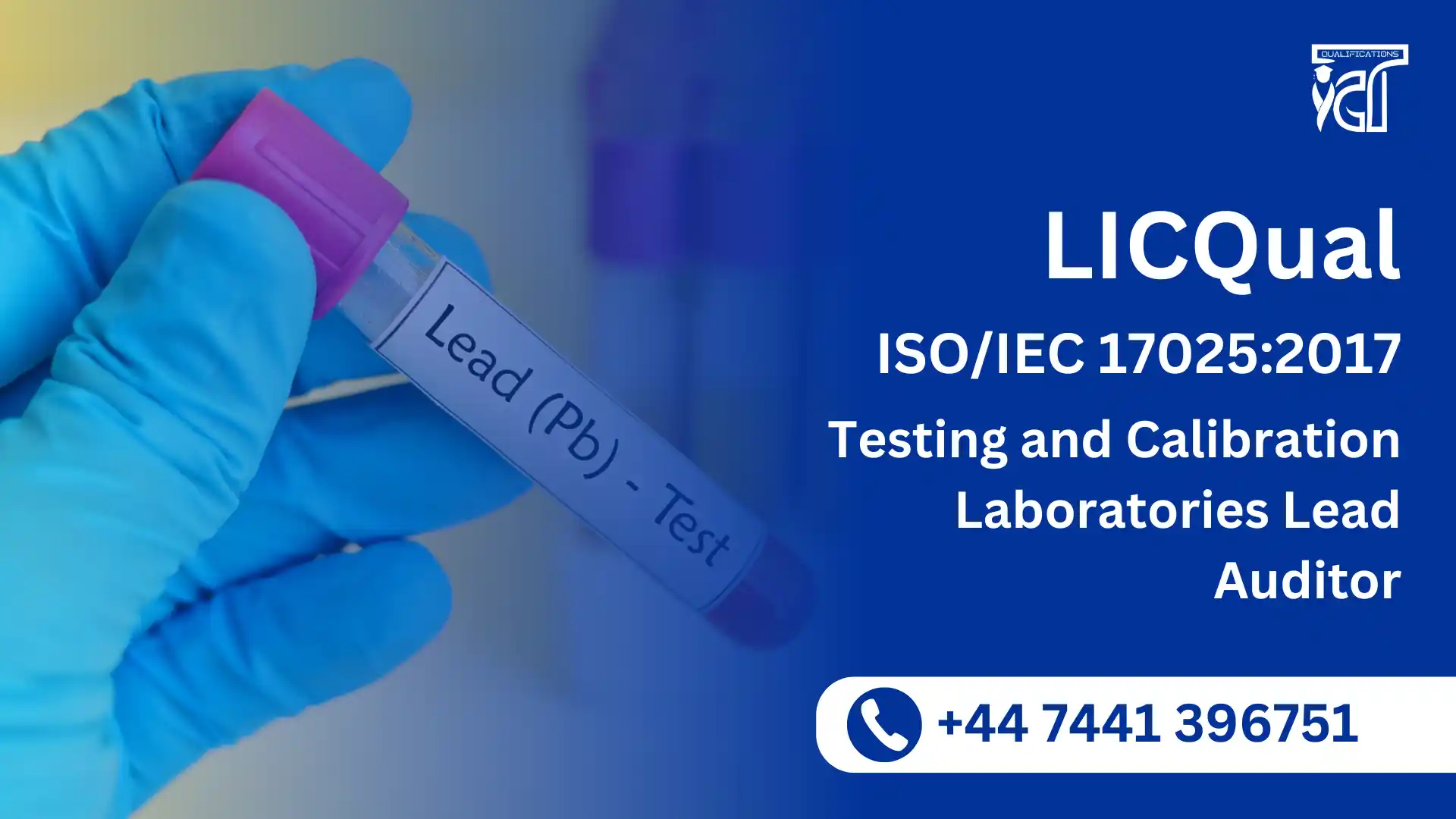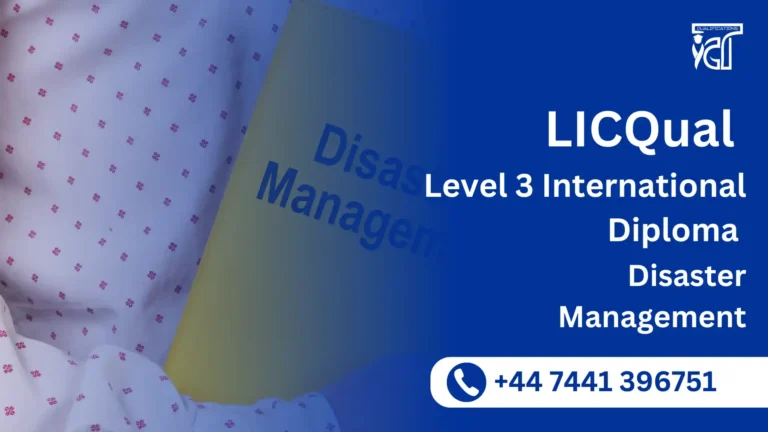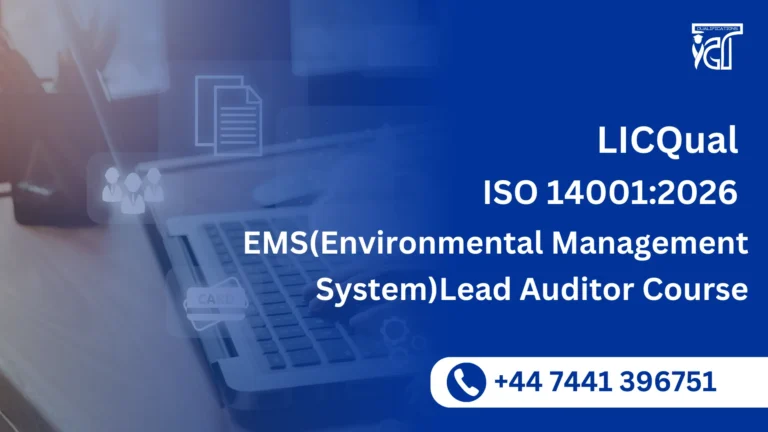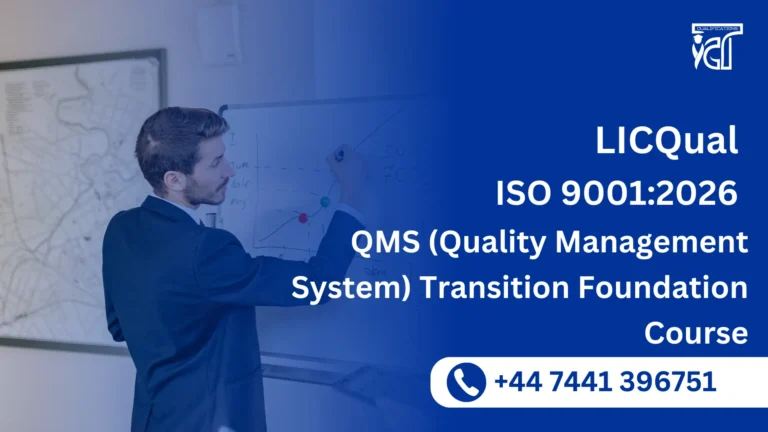The LICQual ISO/IEC 17025:2017 Testing and Calibration Laboratories Lead Auditor course is designed to equip professionals with the essential knowledge and auditing skills required to assess and verify the competence of testing and calibration laboratories in accordance with the ISO/IEC 17025:2017 international standard. This standard specifies the general requirements for the competence, impartiality, and consistent operation of laboratories worldwide.
Through this comprehensive course, learners will gain an in-depth understanding of the principles, structure, and key requirements of ISO/IEC 17025:2017, including technical and management system requirements crucial for laboratory operations. The training covers best practices for planning, conducting, reporting, and following up on audits to ensure laboratories maintain high standards of quality, reliability, and traceability of measurement results.
Participants will also develop the leadership skills necessary to manage audit teams and handle complex auditing scenarios in laboratory environments. Upon successful completion, learners will be fully prepared to lead internal and external audits, ensuring that laboratories meet both regulatory and customer requirements, and foster continual improvement within laboratory processes.
This course is ideal for laboratory managers, quality managers, technical experts, internal auditors, and professionals aspiring to become lead auditors in testing and calibration laboratories.
LICQual ISO/IEC 17025:2017 Testing and Calibration Laboratories Lead Auditor
Following are the mandatory units of LICQual ISO 50001:2018 Energy Management System Lead Auditor:
| Unit Ref# | Unit Title | Credit | GLH |
| LICQ2200106-1 | Introduction to ISO/IEC 17025 and its significance in laboratory operations. | 8 | 24 |
| LICQ2200106-2 | Understanding the requirements for management and personnel competence | 8 | 24 |
| LICQ2200106-3 | Calibration and validation of equipment and measurement processes | 6 | 18 |
| LICQ2200106-4 | Implementation of quality control measures and proficiency testing | 6 | 18 |
| LICQ2200106-5 | Documentation and reporting of test/calibration results | 6 | 18 |
| LICQ2200106-6 | Preparation for accreditation and audit processes | 6 | 18 |
GLH (Guided Learning Hours) and TQT (Total Qualification Time) are terms commonly used in vocational qualifications to help define the amount of time a learner is expected to spend on their studies.
1. GLH (Guided Learning Hours)
GLH refers to the number of hours a learner spends being directly taught, supervised, or supported during their course. This includes the time spent in activities such as:
- Classroom instruction
- Practical workshops
- One-on-one tutoring or mentoring sessions
- Online learning sessions with tutor support
In other words, GLH represents the time that learners are actively engaged with their instructors or learning activities.
2. TQT (Total Qualification Time)
TQT represents the total amount of time a learner is expected to invest in completing a qualification, including:
- GLH (Guided Learning Hours): Time spent on direct learning, as explained above.
- Self-Directed Learning: This includes time spent on independent study, research, assignment completion, preparation for exams, and any other work the learner does outside of direct teaching hours.
TQT is a broader measure that includes all the time required to achieve the qualification. It helps learners and employers understand the overall commitment required for the qualification.
Key Differences Between GLH and TQT:
- GLH focuses on direct learning with guidance or supervision.
- TQT includes GLH as well as independent study time and other learning-related activities.
Example:
If a qualification has a TQT of 600 hours and a GLH of 250 hours, it means the learner should spend 250 hours in direct learning (classroom, online, or tutor-led sessions) and 350 hours on independent study or research.
By the end of the LICQual ISO/IEC 17025:2017 Testing and Calibration Laboratories Lead Auditor, learners will be able to:
Introduction to ISO/IEC 17025:2017 and Laboratory Accreditation
Upon completion of this unit, learners will be able to:
- Understand the structure and key requirements of ISO/IEC 17025:2017 for testing and calibration laboratories.
- Explain the importance of laboratory accreditation and how ISO/IEC 17025:2017 ensures competence in testing and calibration.
- Identify the benefits of implementing ISO/IEC 17025:2017 for laboratories and their clients.
- Recognize the scope of the standard and its role in ensuring the quality and reliability of laboratory results.
Management System Requirements for Laboratories
By the end of this unit, learners will be able to:
- Understand the management system requirements of ISO/IEC 17025:2017, including roles, responsibilities, and authority within the laboratory.
- Assess the laboratory’s management structure to ensure it aligns with ISO/IEC 17025:2017 requirements.
- Evaluate the effectiveness of the laboratory’s quality management system (QMS) in maintaining accurate, reliable, and consistent results.
- Implement documentation control and ensure proper record-keeping practices within laboratory settings.
Technical Competence and Calibration Procedures
Upon successful completion of this unit, learners will be able to:
- Understand the technical requirements for testing and calibration, including methods, equipment, and personnel competence.
- Assess the laboratory’s technical competence in performing accurate tests and calibrations in compliance with ISO/IEC 17025:2017.
- Evaluate the implementation of calibration procedures and the validity of measurement results.
- Conduct a review of laboratory equipment, calibration processes, and testing methods to ensure adherence to standards.
Planning and Conducting Audits for ISO/IEC 17025:2017 Compliance
After completing this unit, learners will be able to:
- Develop an audit plan for ISO/IEC 17025:2017, including objectives, scope, and audit criteria.
- Conduct audits of laboratory processes and systems to assess compliance with ISO/IEC 17025:2017.
- Identify non-conformities and document audit findings in line with ISO/IEC 17025:2017 requirements.
- Lead audit teams and manage resources effectively during the audit process.
Risk Management and Non-Conformance in Laboratories
By the end of this unit, learners will be able to:
- Apply risk management principles to identify and evaluate risks within laboratory processes.
- Develop corrective and preventive actions to address non-conformities identified during audits.
- Implement measures to mitigate risks and prevent recurrence of non-conformities in laboratory operations.
- Assess the laboratory’s approach to risk management and recommend improvements for better compliance with ISO/IEC 17025:2017.
Continuous Improvement and Performance Evaluation in Laboratories
Upon completion of this unit, learners will be able to:
- Understand the continuous improvement process within the laboratory and the role of ISO/IEC 17025:2017 in driving it.
- Evaluate the effectiveness of laboratory processes and systems through monitoring, measurement, and performance evaluation.
- Develop strategies for continuous improvement based on audit results and performance evaluations.
- Ensure the laboratory remains compliant with ISO/IEC 17025:2017 by promoting a culture of ongoing quality assurance and improvement.
Key Benefits of the LICQual ISO/IEC 17025:2017 Testing and Calibration Laboratories Lead Auditor
Comprehensive Understanding of ISO/IEC 17025:2017
Gain an in-depth knowledge of the ISO/IEC 17025:2017 standard, including its technical and management system requirements essential for ensuring the competence and consistent operation of testing and calibration laboratories.
✔ Enhanced Auditing Skills
Develop the ability to plan, conduct, report, and follow up on audits of laboratory management systems to assess compliance with ISO/IEC 17025:2017, ensuring laboratory operations meet international best practices.
✔ Ability to Evaluate Laboratory Competence
Learn to assess the technical competence of laboratory personnel, validity of test results, measurement traceability, and equipment calibration in line with global quality and regulatory standards.
✔ Improved Risk-Based Thinking and Decision Making
Acquire the skills to apply risk-based thinking during audits, enabling the identification of potential risks and opportunities for continual improvement in laboratory processes.
✔ Leadership in Audit Management
Gain the confidence and capability to lead audit teams effectively, manage complex auditing scenarios, and ensure proper communication and reporting of audit outcomes.
✔ Contribution to Laboratory Quality Improvement
Help laboratories enhance their performance, reliability, and credibility by ensuring compliance with ISO/IEC 17025:2017 and fostering a culture of accuracy, impartiality, and continual improvement.
✔ Globally Recognized Qualification
Achieve a respected certification that enhances career prospects in laboratory management, quality assurance, regulatory compliance, and auditing roles within diverse industries such as healthcare, manufacturing, food safety, environmental testing, and more.
✔ Practical Application and Real-World Insights
Benefit from real-life case studies, practical examples, and scenarios that provide hands-on experience in dealing with laboratory quality challenges and audit situations.
✔ Support for Organizational Accreditation Goals
Assist laboratories in meeting accreditation requirements and improving their reputation and customer trust through effective implementation and auditing of ISO/IEC 17025:2017 systems.
Ideal Learner: LICQual ISO 50001:2018 Energy Management System Lead Auditor
This course is ideally suited for:
Aspiring and Experienced Auditors
Individuals who want to develop or enhance their auditing skills in the field of testing and calibration laboratories in accordance with ISO/IEC 17025:2017 standards.
Laboratory Managers and Supervisors
Laboratory leaders responsible for managing technical operations, quality assurance, and maintaining compliance with international laboratory standards.
Quality Managers and Quality Assurance Personnel
Professionals who oversee laboratory quality management systems and aim to ensure their organization’s practices meet ISO/IEC 17025:2017 requirements.
Technical Experts and Laboratory Personnel
Scientists, engineers, and technical staff involved in laboratory testing or calibration activities who wish to understand the auditing process and laboratory system evaluation criteria.
Consultants and Advisors
Management system consultants and quality advisors who support laboratories in achieving and maintaining ISO/IEC 17025 accreditation.
Regulatory and Compliance Officers
Professionals responsible for ensuring that laboratories comply with national and international regulations, accreditation bodies’ requirements, and industry-specific standards.
Individuals Interested in Laboratory Accreditation
Anyone committed to improving laboratory quality systems, ensuring reliable and accurate test results, and supporting organizational goals for accreditation and customer confidence.
Entry Requirements
Register Now
Qualification Process
Qualification Process for the LICQual ISO/IEC 17025:2017 Testing and Calibration Laboratories Lead Auditor
- Self-Assessment:
Begin by evaluating your eligibility to ensure you meet the qualification requirements, including work experience, knowledge, and language proficiency. - Registration:
Complete your registration by submitting the required documents, including a scanned copy of a valid ID, and paying the registration fee. - Induction:
An assessor will conduct an induction to confirm your eligibility for the course and explain the evidence requirements. If you do not meet the criteria, your registration will be canceled, and the fee will be refunded. - Assignmnets & Evidence Submission:
Provide all assignmnets and the necessary evidence based on the assessment criteria outlined in the course. If you are unsure of the required evidence, consult with the assessor for guidance on the type and nature of evidence needed. - Feedback and Revision:
The assessor will review your submitted evidence and provide feedback. Evidence that meets the criteria will be marked as “Criteria Met,” while any gaps will be identified. You will be asked to revise and resubmit if needed. - Competence Evidence:
Submit final evidence demonstrating that all learning outcomes have been met. This evidence will be marked as “Criteria Met” by the assessor once it is satisfactory. - Internal Quality Assurance (IQA):
The Internal Quality Assurance Verifier (IQA) will review your evidence to ensure consistency, quality, and compliance with standards. - External Verification:
The IQA will submit your portfolio to LICQual External Quality Assurance Verifiers (EQA) for final confirmation. The EQA may contact you directly to verify the authenticity of your evidence. - Certification:
Upon successful completion of all checks, LICQual will issue your official certificate, confirming that you have attained the LICQual ISO/IEC 17025:2017 Testing and Calibration Laboratories Lead Auditor.







